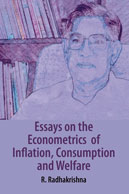New Releases...
Download Catalogue...
Download Excel Data
Download PDF Catalogue
You will get a Excel file with detail about catalogue.
You will get PDF file with detail about catalogue.
Detailed info...
Morality of Markets
Parth J Shah (Ed.)
About the Book
<p>Morality of Markets presents a unique compilation of essays by distinguished economists, ethicists, and theologians that explores the moral and ethical foundations of the free market.</p>
<p> </p>
<p>The book overwhelmingly supports the fundamental morality of markets and the general immorality of government interventions in capitalist act among consenting adults. The notion that private property and market exchanges are inherently unjust is systematically disproved, both from the economic and philosophical perspective.</p>
<p> </p>
<p>The essay comprehensively address critical issues ranging from the underlying ethics of voluntary exchange, morality in commerce and corporation, the immorality of state intervention, and the role of markets in the teaching of major world religions.</p>
<p> </p>
<p>Gurcharan Das is his foreword underscores the relevance of this approach:</p>
<p>"Our animus against capitalism may have diminished after communism's fall; increasingly, some Indians may also agree that markets do indeed deliver greater prosperity; but most Indian still think that capitalism is not a moral system."</p>
<p> </p>
<p>Hence this book is timely. We have already tasted significant benefits of competition inn recent years; we have also experienced enough economic liberty for a decade to be more receptive to the ideas of this book."</p>
<p> </p>
<p><br />
<strong>Snippets From The Book....</strong></p>
<p><br />
<br />
"In an ideal free market resting on private property, no individual can coerce any other, all cooperation is voluntary, all parties to such cooperation benefit or they need not participate."<br />
<strong> - Milton Friedman</strong></p>
<p> </p>
<p>"... there is no way to dispensing with the institution of market in general as a powerful engine of economic progress."<br />
<strong> - Amartya Sen</strong></p>
<p> </p>
<p>"The challenge is to convince people that a majority vote does not establish morality and that free markets are morally superior to other forms of human organisation."<br />
<strong> - Walter E Williams</strong></p>
<p> </p>
<p>"A society built on libertarian foundations is a society marked by peace, harmony, liberty, maximum utility for all, and progressive improvement in living standards."<br />
<strong>- Murry N Rothbard</strong></p>
<p> </p>
<p>"... the role of government is not to legislate morality - an impossible and dangerous goal - or even to "empower people"; the role of the government is to allow people the freedom to grow into responsible citizens and to exercise their inalienable rights."<br />
<strong> - James A Dorn</strong></p>
<p> </p>
<p>"...government regulations constitutes a morally impermissible incapacitation of some people as moral agents, undermines their distinctive human nature, and violates their basic human rights. It is, in short, a form of injustice."<br />
<strong> - Tibor Machan</strong></p>
<p> </p>
<p>"The 21st century will be the century of the universal middle class. It will exhibit the bourgeois virtues."<br />
<strong> - Tibor Machan</strong></p>
Praise for this book
<p>"Singing the market's virtues.....the pieces are remarkably well written."</p>
<p><strong>-Businessworld</strong></p>
About the Author(s) / Editor(s)
<p><strong>Parth J Shah </strong>is founder president of the Centre for Civil Society — an independent, nonprofit, research and educational think-tank based in New Delhi.</p>
<p> </p>
<p>Parth received his B. Pharm. from M.S. University, Baroda, and Ph.D. in economics from Auburn University in the USA. He taught economics at the University of Michigan at Dearborn before returning to India to start the Centre for Civil Society. He has published academic articles in the areas of development economics, welfare economics, business cycle theory, free or laissez-faire banking, and currency board systems. In India his research has focused on private initiatives and reforms in the education system and property rights approach to environmental problems and natural resource management.</p>
<p> </p>
<p>He has edited Friedman on India, Profiles in Courage: Dissent on Indian Socialism, Do Corporations Have Social Responsibility ? and co-edited Law, Liberty, and Livelihood, Terracotta Reader, B.R. Shenoy : Theoretical Vision, B.R. Shenoy : Economic Prophecies, and Agenda for Change. He writes regularly for several newspapers and magazines. He is the youngest Indian member of the Mont Pelerin Society, the premier international association of classical liberals.</p>
Contributors
<p><strong>Imad A. Ahmad</strong> graduated cum laude from Harvard in 1970 and in 1975 obtained a Ph.D. in astronomy and astrophysics from the University of Arizona. He is an educator who currently teaches honours courses in “Religion and Progress” and on “Religion, Science and Freedom” at the University of Maryland in College Park, MD. He is also an adjunct professor at the Johns Hopkins University School for Advanced International Studies where he has taught a course in Islam and Development. He is currently President of the Minaret of Freedom Institute, an Islamic public policy research institute in Washington, DC. He is the author of Signs in the Heavens: A Muslim Astronomer’s Perspective on Religion and Science. He is also editor of Islam and the Discovery of Freedom and co-editor of Islam and the West: A Dialog.</p>
<p> </p>
<p><br />
<strong>Peter J. Boettke</strong> is the Deputy Director of the James M. Buchanan Center for Political Economy, a Senior Research Fellow at the Mercatus Center, and a professor in the economics department at George Mason University. He received his BA in economics from Grove City College and his PhD in economics from George Mason University. Before joining the faculty at George Mason University in 1998, he held faculty positions at Oakland University, Manhattan College and New York University. Boettke is the author of several books on the history, collapse and transition from socialism in the former Soviet Union — The Political Economy of Soviet Socialism: The Formative Years, 1918-1928 ; Why Perestroika Failed: The Economics and Politics of Socialism Transformation; and Calculation and Coordination: Essays on Socialism and Transitional Political Economy.</p>
<p> </p>
<p><br />
Paul A. Cleveland is part of the economics faculty at Birmingham-Southern College. He received his Ph.D. in Economics from Texas A&M University. He serves as an Adjunct Scholar with the Acton Institute. His articles have been published in numerous places including the Journal of Private Enterprise, Religion and Liberty, and Ideas on Liberty. In addition to his writing, he has lectured on the free market in numerous places including universities in Lithuania, Poland, and Taiwan.</p>
<p> </p>
<p><br />
<strong>Gurcharan Das</strong> is a columnist for the Times of India and the former CEO of Procter & Gamble India. He graduated from Harvard College in Philosophy and Politics and attended Harvard Business School. He is currently a venture capitalist and serves as a consultant to industry and government leaders. He is the author of three plays (including the renowned “Larins Sahib”) and several works of nonfiction, including India Unbound (2001) and the Elephant Paradigm (2002).</p>
<p> </p>
<p><br />
<strong>James A</strong>. <strong>Dorn</strong> Cato’s vice president for academic affairs, James A. Dorn is editor of the Cato Journal and director of Cato’s annual monetary conference. His research interests include trade and human rights, economic reform in China, and the future of money. He directed Cato’s Project on Civil Society from 1993 to 1995. From 1984 to 1990, he served on the White House Commission on Presidential Scholars. He has edited ten books, and his articles have appeared in numerous publications. Dorn holds an M.A. and a Ph.D. in economics from the University of Virginia.</p>
<p> </p>
<p><br />
<strong>Milton Friedman</strong> is the twentieth century’s most prominent economist advocate of free markets. He attended Rutgers University, where he received his B.A., then went on to earn his M.A. from the University of Chicago in 1933 and his Ph.D. from Columbia University in 1946. In 1976 he won the Nobel Prize in economics for “his achievements in the field of consumption analysis, monetary history and theory, and for his demonstration of the complexity of stabilization policy.” Before that time, he had served as an adviser to President Nixon and was president of the American Economic Association in 1967. Since retiring from the University of Chicago in 1977, Friedman has been a senior research fellow at the Hoover Institution at Stanford University.</p>
<p> </p>
<p><br />
<strong>Brian Griffiths </strong>taught at the London School of Economics from 1965 to 1976. He was a director of the Bank of England from 1983 to 1985. He served as head of the Prime Minister’s Policy Unit from 1985 until 1990. On leaving No. 10 he was made a member of the House of Lords. From 1991 to 2000 he was Chairman of the Centre for Policy Studies. Since then, Lord Griffiths has been Vice Chairman of Goldman Sachs (Europe) and an international advisor to Goldman Sachs.</p>
<p> </p>
<p><br />
<strong>Professor Ian Harper </strong>holds the Sidney Myer Chair of Commerce and Business Administration at the Melbourne Business School within the University of Melbourne. He is also Assistant Director and Dean of Faculty at the School. Apart from his academic work, Ian actively consults to Governments and the corporate sector and often appears on the national conference speaking circuit. Ian Harper has published research papers on the effects of financial deregulation, the economics of saving, bank supervision, the role of superannuation, and the future of Australia’s health insurance system. In 2000, he was elected a Fellow of the Australian Academy of Social Sciences. He is a member of the Centre for Independent Studies, Sydney.</p>
<p> </p>
<p><br />
<strong>Sharad Joshi</strong> is an agriculturalist, peasant-leader, economic columnist, and the founder-leader of Shetkari Sanghatana in Maharashtra and the All India Kisan Coordination Committee. He has led a number of mass agitations in Maharashtra, Karnataka, Gujarat, Punjab and Haryana for remunerative prices of agricultural products, against hike in electricity tariffs, for liquidation of rural debts and against State dumping in domestic markets. He has been an original and persistent propounder of the postulate that the government imposed negative subsidies on farmers as a matter of deliberate policy. He has served as a member of the Advisory Board of the World Agricultural Forum (WAF), St. Louis, and as Chairman, Standing Advisory Committee on Agriculture (SAC) with the rank of a Central Cabinet Minister. He received his M.Com degree from Sydenham College, Bombay, in 1957. His publications include Organisation of Peasants: Thought and Practice and Bharat Eyeview.</p>
<p> </p>
<p><br />
<strong>Israel Kirzner </strong>is a leading economist in the Austrian School. He received his PhD in economics in 1957 from Brooklyn College in New York, when he was studying under Ludwig von Mises. His major work is in the economics of entrepreneurship and ethics and economics. He is a professor at New York University. Some of his major works include: Entrepreneurial Discovery and The Competitive Market Process: An Austrian Approach, (Journal of Economic Literature, March 1997), The Meaning of Market Process, Discovery, Capitalism and Distributive Justice and Competition and Entrepreneurship.</p>
<p> </p>
<p> </p>
<p><strong>Don Lavoie</strong> The late Don Lavoie served as the David H. and Charles G. Koch Chair of Economics at the Program on Social and Organizational Learning, George Mason University, and was twice the recipient of the university’s Distinguished Faculty award. He received his Ph.D. in Economics in 1981 from New York University. He is best known as author of two books published in 1985, Rivalry and Central Planning and National Economic Planning: What is Left?, which elaborate on the “Austrian” schools critique of centralized economic planning, and for his work in the philosophy of economics. His books on the critique of central planning could be said to have anticipated and explained the collapse in 1989 of the soviet-type economies in Eastern Europe, and his work in philosophy has won him international recognition as a leading critic of mainstream economics. He edited Economics and Hermeneutics, a collection of essays which explores the implications of hermeneutical philosophy for economics, and a collection of essays by his teacher, Ludwig Lachmann, entitled Expectations and the Meaning of Institutions.</p>
<p> </p>
<p><br />
<strong>Tibor Machan</strong> is Distinguished Fellow and Freedom Communications Professor, Leatherby Center for Entrepreneurship and Business Ethics at Chapman University. He is also affiliated with the Hoover Institution at Stanford University, is on the advisory board for several foundations and think tanks, and served on the Board of the Jacob J. Javits Graduate Fellowship Program of the U.S. Department of Education. He received his MA from New York University, and his Ph.D from the University of California, Santa Barbara. Dr. Machan has authored numerous books including A Primer on Ethics (1997) and Private Rights & Public Illusions, and co-founded Reason magazine. He has contributed to numerous scholarly journals including The American Philosophical Quarterly, American Journal of Jurisprudence, and the International Journal of Social Economics.</p>
<p> </p>
<p><br />
<strong>Alexei M Marcoux</strong> is Assistant Professor of Business Ethics in the Graduate School of Business, Loyola University, Chicago. His work on the normative aspects of corporate governance has appeared in Business Ethics Quarterly and Business & Professional Ethics Journal. During fall 2004, Prof Marcoux will be Visiting Scholar at the Social Philosophy & Policy Centre (Bowling Green, Ohio), where he will begin work on a book advancing a transaction-based theory of commercial ethics.</p>
<p> </p>
<p><br />
<strong>Deirdre McCloskey</strong> is Distinguished Professor, Liberal Arts & Sciences, University of Illinios at Chicago and Tinbergen Distinguished Professor, Erasmus University of Rotterdam. She received her Ph.D in Economics from Harvard University in 1970. She has written numerous books and articles in the fields of economic history, rhetorical criticism in history and economics, and the sociology of science. Some of her books include Enterprise and Trade in Victorian Britain: Essays in Historical Economics, The Rhetoric of Economics, If You’re So Smart: The Narrative of Economic Expertise, The Vices of Economists; The Virtues of the Bourgeoisie, and Crossing: A Memoir.</p>
<p> </p>
<p><br />
<strong>Leonard E. Read</strong>: The late Leonard E. Read was the founder of the Foundation for Economic Education, one of the original pro-freedom think tanks. Through his tireless efforts in that organization, as well as through his books, countless essays, and extensive speaking schedule, he was largely responsible for the revival of the liberal tradition in post-World War II America. Read also served as the manager of the Los Angeles Chamber of Commerce, — the largest in the U.S— where he struggled against the prevailing Marxist and Keynesian economic policies. In numerous Chamber publications he had refuted the Marxian charges of the exploitation, abuse, and immiseration of workers by “the bourgeoisie.” Some of his books include Accent on the Right, The Freedom Freeway, The Love of Liberty, and Seeds of Progress.</p>
<p> </p>
<p><br />
<strong>Murray N. Rothbard:</strong> The late Murray Rothbard was an economist and political theorist belonging to the Austrian School of Economics who helped define modern libertarianism and anarcho-capitalism. He is one of the few economic authors who have studied and presented the pre-Smithian economic schools, such as the scholastics and the physiocrats. These are discussed in his unfinished, multi-volume work An Austrian Perspective on the History of Economic Thought. His other books include Man, Economy, and State , Power and Market, America’s Great Depression, For a New Liberty: The Libertarian Manifesto. He founded Left and Right: A Journal of Libertarian Thought with Leonard Liggio and George Resch. During the 1970’s and 80’s, Rothbard was active in the American Libertarian Party. He was the academic vice president of the Ludwig von Mises Institute and the Center for Libertarian Studies, was a distinguished professor at the University of Nevada, Las Vegas.</p>
<p> </p>
<p><br />
<strong>Amartya K. Sen:</strong> Nobel laureate Amartya Sen is Master of Trinity College, Cambridge, UK, and Lamont University Professor Emeritus at Harvard University. He has served as President of the Econometric Society, the Indian Economic Association, the American Economic Association and the International Economic Association. Professor Sen has published a number of books as well as articles in various journals of economics, philosophy, politics and decision theory. His books have been translated into many languages and include Collective Choice (1970), On Economic Inequality (1973, 1977), On Ethics and Economics (1987), Choice, Welfare and the Measurement (1921), Resources, Values and Development (1984), The Standard of Living (1987), Inequality Reexamined (1992), and Development as Freedom (1999), among others.</p>
<p> </p>
<p><br />
<strong>Parth J. Shah</strong> is president of the Centre for Civil Society, New Delhi. He received his B Pharm from M S University, Baroda, and Ph D in economics (with an emphasis on Austrian Political Economy) from Auburn University in the USA. He taught economics at the University of Michigan at Dearborn before returning to India to start the Centre for Civil Society. He has published academic articles in the areas of development economics, welfare economics, business cycle theory, free or laissez-faire banking, and currency board systems. In India his research has focused on private initiatives in and reforms of the education system and property right approach to environmental problems and natural resource management. He has edited Friedman on India, Profiles in Courage: Dissent on Indian Socialism, Do Corporations have Social Responsibility? and co-edited Law, Liberty, and Livelihood, Terracotta Reader, and Agenda for Change. He is the youngest Indian member of the Mont Pelerin Society, the premier international association of classical liberals.</p>
<p> </p>
<p><br />
<strong>Walter E. Williams</strong> is the John M. Olin Distinguished Professor of Economics and Chairman of the Economics Department at George Mason University. More than 50 of his publications have appeared in scholarly journals such as Economic Inquiry, American Economic Review and Social Science Quarterly and popular publications such as Reader’s Digest, The Wall Street Journal and Newsweek. He is also the author of The State Against Blacks, later made into a television documentary, America: A Minority Viewpoint, All It Takes Is Guts, and South Africa’s War On Capitalism.</p>
<p> </p>
<p><br />
<strong>Emily Chamlee-Wright</strong> is associate professor of economics and management at Beloit College in Wisconsin. Her book The Cultural Foundation of Economic Development (Routledge) explores the strategies for capital accumulation and mutual assistance among market women in Ghana. Her current research is on micro-finance and indigenous capital accumulation strategies in Harare, Zimbabwe. Prof. Chamlee-Wright received the Underkoffler Award for Excellence in Teaching (Beloit College’s “Teacher of the Year Award”) in 1997. Professor Chamlee-Wright was a W.K. Kellogg National Leadership Fellow from 1995-1998, and currently directs the Beloit College Leadership Institute, which identifies and trains student leaders interested in business and community development.</p>
<p> </p>
<p><br />
<strong>Edward W. Younkins</strong> is Professor of Accountancy and Business Administration at Wheeling Jesuit University, and the founder of the university’s undergraduate degree program in Political and Economic Philosophy. The author of numerous articles in accounting and business journals, his articles and reviews have appeared in Ideas on Liberty (formerly The Freeman), The Journal of Markets and Morality, The Social Critic, Le Québécois Libre, Liberty Free Press, and many other publications. He has edited a collection of Michael Novak’s articles and essays entitled Three in One: Essays on Democratic Capitalism, 1976-2000. He is also the author of Capitalism and Commerce: Conceptual Foundations of Free Enterprise</p>
<p> </p>
<p><br />
<strong>Mario Gómez-Zimmerman</strong> is a Salvadoran physician living in the United States. He is the author of two books on the war in El Salvador: El Salvador: La Otra Cara de la Guerra and El: Salvador: Who Speaks for the People?</p>
Print Brochure...
Print as it is
Customised brochure
You will get a printout of what you see on your screen under 'Detailed Info'(Uneditable).
You will have the opportunity to edit the text and adjust the extent to fit on A4 size sheet or more accordingly as you desire. Plus, you can download the edited/customised Brochure or simply print it (CTRL + P).


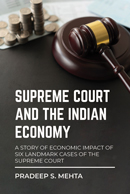



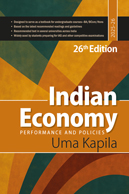
-web-194.jpg)
-front.jpg)
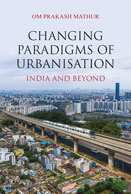






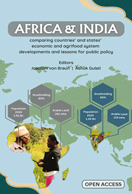
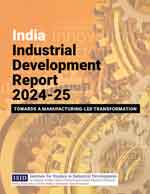
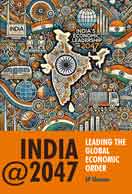
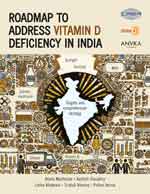
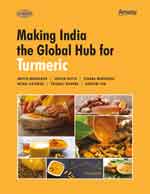
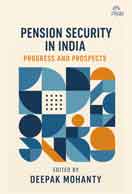
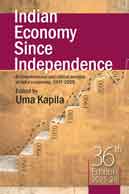
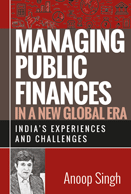

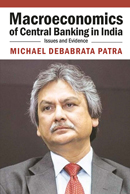

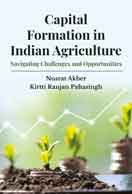



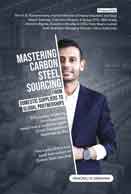







-COVER-web-194.jpg)





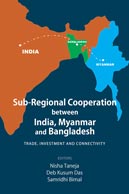






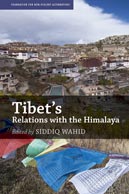



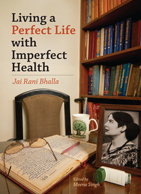












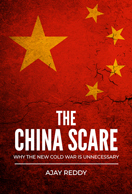
.jpg)






